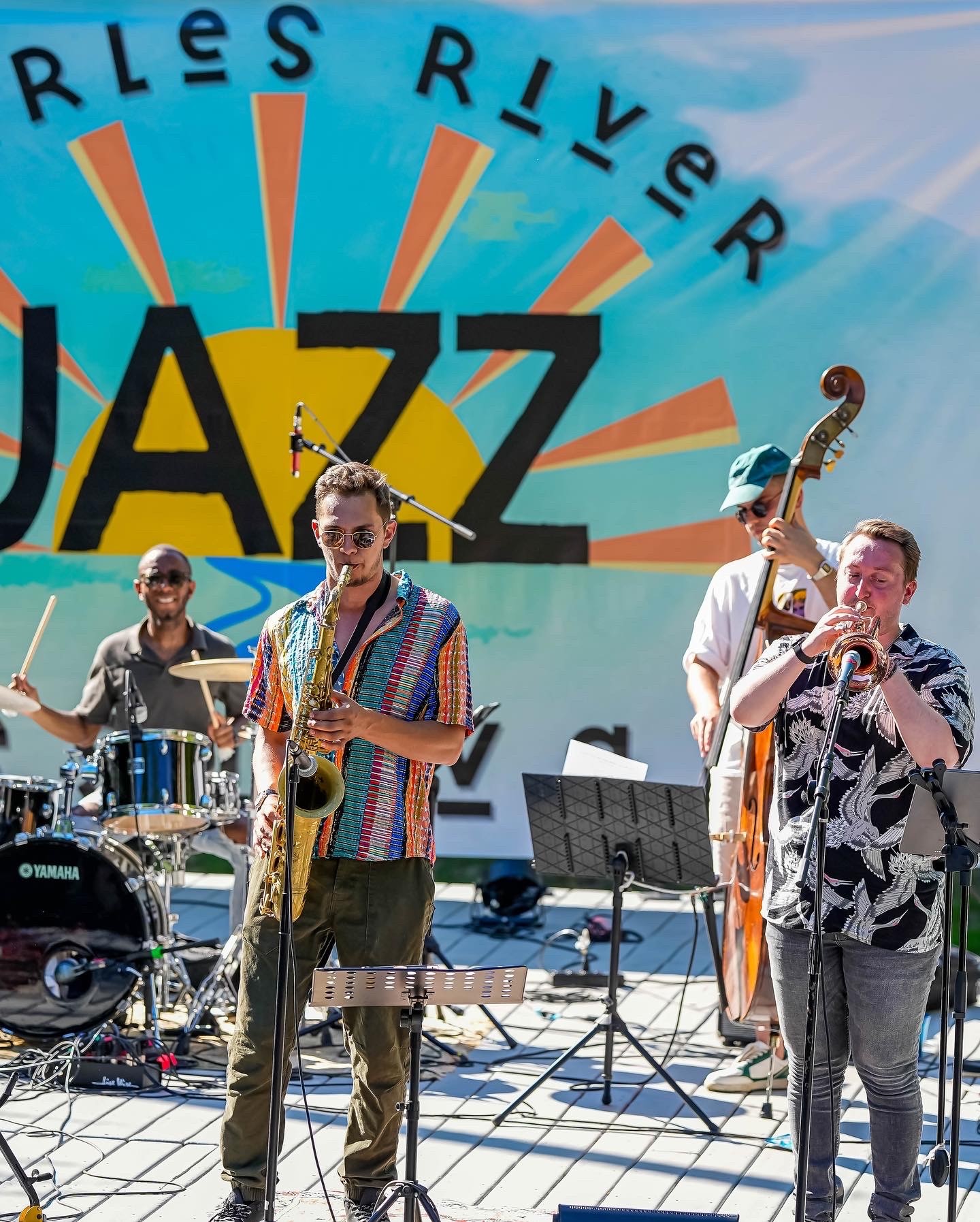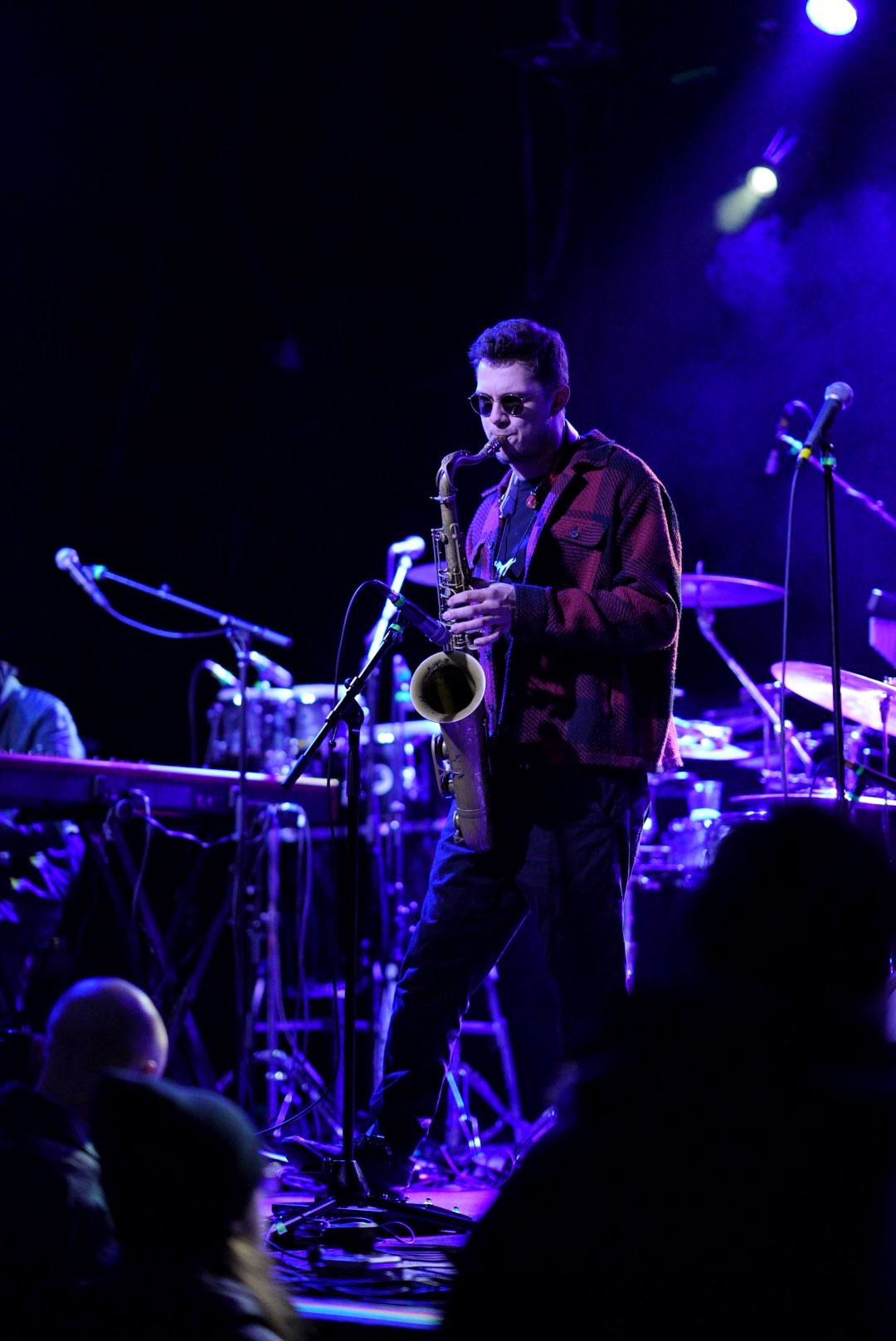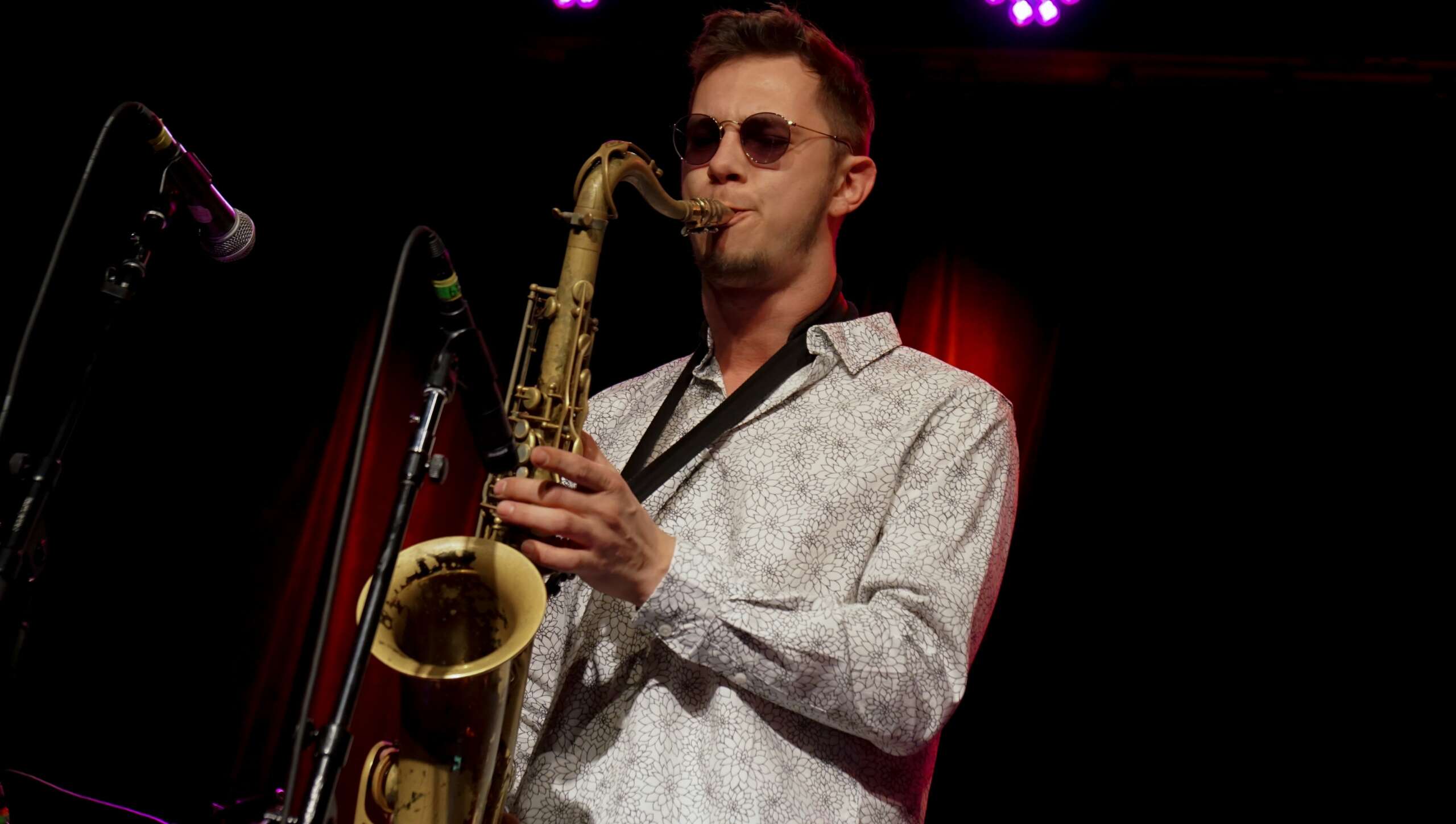We recently connected with Seba Molnar and have shared our conversation below.
Seba, appreciate you joining us today. Do you think your parents have had a meaningful impact on you and your journey?
I grew up in Canton, NY, with a population of 5000, on a small intentional community (“hippie commune”) and an organic vegetable farm called Birdsfoot Farm. Birdsfoot was founded in the early 70s as part of the back-to-the-land movement, serving as a place for people to escape and explore a simple lifestyle within a community.
My mom, Dulli, originally from Germany, is the head farmer running the organic vegetable farm, as well raising cows and ducks. Living off the grid with solar power and growing our own food taught me the importance of hard work and respect for the environment and the people and creatures around me. Birdsfoot was a cultural hub bringing together people from diverse backgrounds, exposing me to different cultures and music styles at a young age. This exposure became a cornerstone of my musical journey, fostering a love for diverse genres and the belief in the power of music to connect people. My unconventional childhood—no TV, no internet—gave me a unique perspective on life and human connection. Bringing people together and the importance of community is something that I took to heart and try to bring with me in all my musical endeavors, everywhere I go.
Both of my parents are music lovers and hobby musicians; my mom Dulli plays a little piano, violin, and sings in the local choir. My father, Steve, is a teacher and founder of the Little River Community School, a small alternative school with 45 students and 5 teachers, focusing on individualized curriculums and hands-on learning. My dad also played clarinet and saxophone, eventually passing them on to me. One memory that really sticks with me was a cross-country road trip that I did with my father when I was 8. We bonded on so many levels on this trip but one of the biggest things for me is this trip is where I discovered my love for jazz. We listened to everything from Ornette Coleman and Sun Ra to the Grateful Dead and Santana and I was captivated and hungry for more.
My dad’s love for music and that trip, more specifically, were key factors in my soon-to-become lifelong infatuation with music. I began playing clarinet and then saxophone a few years later when I was 11. Without the conventional distractions of TV and video games, I fully immersed myself in music, practicing an average of 6 hours a day. My parents’ belief in me and unwavering support to follow my dreams, no matter how crazy they got, is something that I do not take for granted and am so grateful for.



As always, we appreciate you sharing your insights and we’ve got a few more questions for you, but before we get to all of that can you take a minute to introduce yourself and give our readers some of your back background and context?
Another major influence for me was my high school band director Tim Savage. Mr. Savage was and still is to this day one of the most gifted and inspiring teachers I have ever met. He exposed me to the world of jazz and gave me the tools to decode it and make it my own. Having a mentor like him in such a formative part of my life is a big part of the reason I was able to get a head start on my music career and a model for how I want to teach and share this music with others.
After graduating high school in 2012 I was awarded a full scholarship to Berklee College of Music, so I made the move to Boston! Moving to a big city was a major culture shock to me, but I was eager to learn and try something new. I had the chance to work on my craft under the tutelage of several of my saxophone heroes, George Garzone, Tia Fuller and Bill Pierce. In collage I was deeply immersed in the jazz scene while at the same time touring with a number of funk and reggae bands. Giving me an eclectic and diverse musical background. My music is heavily rooted in jazz but I love to mix sounds and grooves creating musical tapestries of my life experiences. I graduated Berklee in 2016 and have been living and working full time as a musician in Boston since then. My first artistic statement as a leader was my album Level Up, released in 2020, days before the pandemic hit. The album, recorded in a DIY studio, features my mentor, George Garzone. Since then, I have had the opportunity to collaborate and share stages with other notable musicians, such as Grammy-nominated artists Ghost-Note, Braxton Cook, Makaya Mccraven, Patrice Rushen, Debo Ray, Charles Haynes, Farayi Malek, and many more.
Jazz greats Dizzy Gillepsie, Terri Lynn Carrington, and Wayne Shorter have been a major inspiration to me – not only their artistry, but their commitment to making the world a better place through music. With the demise of Boston’s BeanTown Jazz Festival, and the closing of venues such as Ryles Jazz Club and the Great Scott, I felt that the music community was slipping away. I felt a profound personal loss, and an equally powerful urge to do something. Embracing my background of community living, In 2017 I started a shared housing artist collective in Allston MA. We had multiple apartments and a shared maker space in the basement. Raymond Street as it was called, became a hub for independent music and art in Boston. Over the 7 years we were there, about 30 different artists lived there from musicians to painters and chefs. It was a meeting place where creatives would come together and socialize and hosted a number of successful house shows as well as pop up dinners, cookouts and art parties. The house has since been dissolved but the vision continued and has grown into the Charles River Jazz Festival.
While Boston boasts a rich history of jazz, internationally recognized institutions of higher learning (i.e. Berklee and NEC), and a wealth of talent, it lacks inclusive spaces for people to engage with it and sufficient cultural infrastructure to keep artists here long-term. I sought to provide greater opportunities for marginalized musicians, making sure the music stays true to its roots. I had the vision of creating a festival that would not only speak to this need, but also to the need to have a more inclusive music scene in Boston.
In 2021 I decided to make that vision a reality by creating the Charles River Jazz Festival. We started at the Herter Park Amphitheater with $2000 budget and a few friends bands. It was a real grass roots kind of operations with friends and family loaning equipment and time to make it all come together. With the proof of concept a success I got right to work planing for the next one. With out any previous experience running a company or planning a festival it was quite a learning experience. But after a lot of blood sweat and tears we made it happen. Given the success of the Festival (over tripling in size since inception) and a growing need for other performance opportunities and artist representation in Boston, the seed was planted to start something even bigger.
A year later, myself, my partner Moriah Phillips, and a core group of collaborators (also musicians) founded the Boston Jazz Foundation (BJF) as a way to grow the Festival and build a platform for ourselves and other artists like us. Now a 501(c)3 non-profit organization, BJF is dedicated to fostering a safe space for marginalized artists to cultivate and create. More specifically, BJF is dedicated to serving the diverse Boston Jazz scene by providing performance opportunities, educational resources, and professional development to showcase jazz and its culture to the Greater Boston community and beyond. We have been building a platform dedicated to inclusivity and diversity, ensuring that all voices and talents, regardless of background or identity, have a platform to shine and be recognized. Now in its fourth year the festival brings in thousands of people from all over the world and is rapidly becoming a highlight of the Boston music scene.


In your view, what can society to do to best support artists, creatives and a thriving creative ecosystem?
I think the best way for society to support artists is through active participation in the arts, wether that be going to a show or buying artists merch or creating art yourself. Another great way to give back is volunteering at or supporting arts organizations and nonprofits that are already working to support artists. There are many ways to be involved and when people feel involved, they care more. It’s as simple as that. This is one of the biggest lesson I have learned living in community. The Boston Jazz Foundation and Charles River Jazz Festival are just a few examples of how we can create the change we want to see in the world even if we are starting from the ground up. Inspired people inspire other people and together we can make anything happen. I truly believe this!


Can you tell us about a time you’ve had to pivot?
I think we can all agree that the pandemic was a period of change and something that many of us are still recovering from today. For me it meant my life getting turned upside down virtually overnight. As a self-employed musician most of my income and job security was gone. Thankfully I was able to continue teaching and doing some recording online, without which I do not think i would have survived the pandemic. Without an end in sight and my career basically being over before it really started. I, like many other people around the world was grappling with depression and contemplating changing careers all together. Thankfully I lived in a household full of musicians and artists who were all going through the same struggle. We were able to lean on each other for support and adapt to the new reality together. We started a weekly live stream where we performed and kept our chops up. Looking back, it almost seems silly how much we cared but it was a real life line for us. It gave us something to work towards and feel like we were still progressing as artists and as individuals. This time also helped me take a step back and reflect on what I really want to do with my life and how I want to use my musical gift. I think this time really helped me build the clarity of my vision to start the Charles River Jazz Festival and the Boston Jazz Foundation.

Contact Info:
- Website: https://www.sebamolnar.com/
- Instagram: https://www.instagram.com/sebamolnarmusic/
- Facebook: https://www.facebook.com/sebamolnarmusic
- Youtube: https://www.youtube.com/channel/UC5nh3mzzX9Z4vLFmeBq3g2A
Image Credits
Astha Zylah Kevin Bianchi


